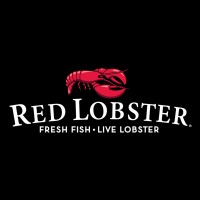
SONIC
SONIC®, America’s Drive-In®, is part of the Inspire Brands family of restaurants. Inspire is a multi-brand restaurant company whose portfolio includes more than 8,300 Arby’s, Buffalo Wild Wings, and SONIC locations worldwide.



SONIC®, America’s Drive-In®, is part of the Inspire Brands family of restaurants. Inspire is a multi-brand restaurant company whose portfolio includes more than 8,300 Arby’s, Buffalo Wild Wings, and SONIC locations worldwide.

With 58,000 employees and more than 700 restaurants in the United States and Canada, and a growing international presence, Red Lobster is the world’s largest seafood restaurant company. Our vision is to be where the world goes for seafood now and for generations. Red Lobster is an innovative, values-based company that focuses on providing guests the ultimate seafood dining experience and continues to grow by focusing on Great Seafood, Great People and Great Results. Great Seafood - Whether it’s delicious Maine lobster, wild-caught Snow and Bairdi crab, grilled salmon or craveable shrimp scampi, our focus is on delighting guests with freshly prepared, quality seafood every time they visit. Great People - We hire team members and managers with the hospitality gene. Our people are dedicated and passionate about delivering our promise - ultimate seafood dining experience – to guests on every visit. In addition, we are a place where our teams receive the skills and training to pursue their professional dreams. Great Results - At Red Lobster, we are focused on driving business momentum and sustainably growing sales. In addition, we emphasize innovation and quality to ensure we satisfy guests to grow their loyalty and motivate them to return today and in the future. There’s no better time than now to join the team at Red Lobster!
Security & Compliance Standards Overview












No incidents recorded for SONIC in 2025.
No incidents recorded for Red Lobster in 2025.
SONIC cyber incidents detection timeline including parent company and subsidiaries
Red Lobster cyber incidents detection timeline including parent company and subsidiaries
Last 3 Security & Risk Events by Company
Angular is a development platform for building mobile and desktop web applications using TypeScript/JavaScript and other languages. Prior to versions 19.2.16, 20.3.14, and 21.0.1, there is a XSRF token leakage via protocol-relative URLs in angular HTTP clients. The vulnerability is a Credential Leak by App Logic that leads to the unauthorized disclosure of the Cross-Site Request Forgery (XSRF) token to an attacker-controlled domain. Angular's HttpClient has a built-in XSRF protection mechanism that works by checking if a request URL starts with a protocol (http:// or https://) to determine if it is cross-origin. If the URL starts with protocol-relative URL (//), it is incorrectly treated as a same-origin request, and the XSRF token is automatically added to the X-XSRF-TOKEN header. This issue has been patched in versions 19.2.16, 20.3.14, and 21.0.1. A workaround for this issue involves avoiding using protocol-relative URLs (URLs starting with //) in HttpClient requests. All backend communication URLs should be hardcoded as relative paths (starting with a single /) or fully qualified, trusted absolute URLs.
Forge (also called `node-forge`) is a native implementation of Transport Layer Security in JavaScript. An Uncontrolled Recursion vulnerability in node-forge versions 1.3.1 and below enables remote, unauthenticated attackers to craft deep ASN.1 structures that trigger unbounded recursive parsing. This leads to a Denial-of-Service (DoS) via stack exhaustion when parsing untrusted DER inputs. This issue has been patched in version 1.3.2.
Forge (also called `node-forge`) is a native implementation of Transport Layer Security in JavaScript. An Integer Overflow vulnerability in node-forge versions 1.3.1 and below enables remote, unauthenticated attackers to craft ASN.1 structures containing OIDs with oversized arcs. These arcs may be decoded as smaller, trusted OIDs due to 32-bit bitwise truncation, enabling the bypass of downstream OID-based security decisions. This issue has been patched in version 1.3.2.
Suricata is a network IDS, IPS and NSM engine developed by the OISF (Open Information Security Foundation) and the Suricata community. Prior to versions 7.0.13 and 8.0.2, working with large buffers in Lua scripts can lead to a stack overflow. Users of Lua rules and output scripts may be affected when working with large buffers. This includes a rule passing a large buffer to a Lua script. This issue has been patched in versions 7.0.13 and 8.0.2. A workaround for this issue involves disabling Lua rules and output scripts, or making sure limits, such as stream.depth.reassembly and HTTP response body limits (response-body-limit), are set to less than half the stack size.
Suricata is a network IDS, IPS and NSM engine developed by the OISF (Open Information Security Foundation) and the Suricata community. In versions from 8.0.0 to before 8.0.2, a NULL dereference can occur when the entropy keyword is used in conjunction with base64_data. This issue has been patched in version 8.0.2. A workaround involves disabling rules that use entropy in conjunction with base64_data.